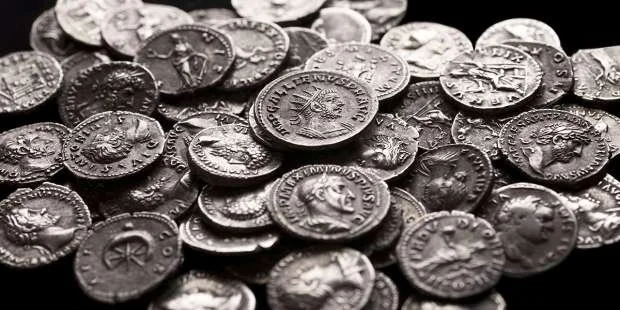Good Friday – April 7th
Prayer: Ask the Lord for eyes to see and ears to hear wonderful things from His Word.
Read: Matthew 27:1-61, Psalm 22, and Isaiah 52:13-53:7
Sometimes people with ill-formed or uninformed spiritual notions say, “if only God would show up, then I would believe in him.” In the mid-1990s, the song One of Us cynically asked “What if God was one of us?” The questions posed by the song were left to the listener to answer philosophically. But today’s passage answers the questions definitively. On this day, we see God in the hands of angry sinners. It was a day of treachery (27:1-10) and false accusations (27:11-18). It was a day of murder (27:26-31) and envious and haughty mockery (27:27-31, 37-44). It was a day when rebellious voices called for the release of a murderer instead of their Messiah (27:15-26). What happened to Jesus this day is exactly how sinful people answer the question, what “would you want to see, if seeing [God] meant that you would have to believe”[1] in Jesus? The answer is, “we don’t want to see Jesus!” Sinners so desperately want to believe in themselves and anything other than Jesus Christ that they were (and still are) eager to put Him to death in their hearts and minds. And when given the opportunity to kill Him, they subjected Him to an unspeakably cruel and brutal death on the cross.
What they saw didn’t fit the Messiah of their imaginations.They wanted a warrior ruler and king. Yet during His earthly ministry there was nothing majestic about Jesus – how could such a poor man – from Galilee of all places – be the Messiah (Isaiah 53:1-3)? They did not see the kind of messiah they wanted, and so they rejected Him. They saw a man they thought deserved the mockery and brutal beatings, because He claimed to be the Son of God. In their minds, He deserved death for such blasphemy (Isaiah 53:4b; Matthew 27:39-43). And it was in the throes of death that Jesus “cried out with a loud voice saying, “Eli, Eli, lema sabachthani?” that is, “My God, My God, why have you forsaken me?” By reciting the first line of Psalm 22, a messianic psalm, Jesus called the past into the present – in other words, He called the people to recite the psalm and see the Word of God accomplished. Yes, all the mockery (Psalm 22:7-8) and distress – even the very means of death – were being fulfilled before their eyes (Psalm 22:14-18). Had they recited the psalm perhaps their eyes would have opened wide as they sang about His pierced hands and feet and realized the Roman soldiers had cast lots for His clothing. And perhaps they would have cried out, “we are killing the Messiah!”
But they did not see these things and they did not cry out. It was Jesus who cried out with a loud voice as He yielded His spirit. This was no cry of defeat; it was a shout of victory over death. Like an athlete who, in the final seconds or remaining yards of a grueling contest, summons from the depths of his being a final push to seize victory with loud exclamation, Jesus plunged into death victorious. To His followers, however, this looked nothing like victory. Instead, it appeared all their hopes and longings for Messiah had been crushed, and they were despondent and confused. It appeared as though in just a week’s time everything had spun out of control and Jesus was powerless to stop the events that led to His death.
But He was in control of every single thing that happened. It is truly mysterious that God used sinful people acting from sinful motives to reject and kill the Son of God. It is truly mysterious that God in fact became one of us to conquer death by dying. The people that put Jesus to death were so intent on “doing the work of God” to kill “a blasphemer,” that they completely missed the work God was doing through Jesus’ death. We tend to see Jesus’ victory over sin and death occurring when He rose from the dead. But His victory was complete when He exclaimed, “It is finished!” (John 19:13). And we see His victory was immediate because the temple curtain was torn from top to bottom, the earth shook, and saints were raised from the dead (Matthew 27:50-53). The Roman soldiers who saw just some of these things – this was unlike any crucifixion they had ever carried out – exclaimed in awe that Jesus was, truly, the Son of God! Having finished all His work, Jesus rested on the Sabbath. His disciples and friends would see Him on the third day, and the victory celebration would commence.
Reflection Questions:
Do you agree that believing in Jesus is necessary to see God?
In Luke 9:23, Jesus said“If anyone would come after me, let him deny himself and take up his cross daily and follow me.” Does this statement cause you to see yourself differently? Does it cause you to see Jesus differently?
[1]One of Us, Eric Bazilian, ©Warner Chappell Music, Inc.




